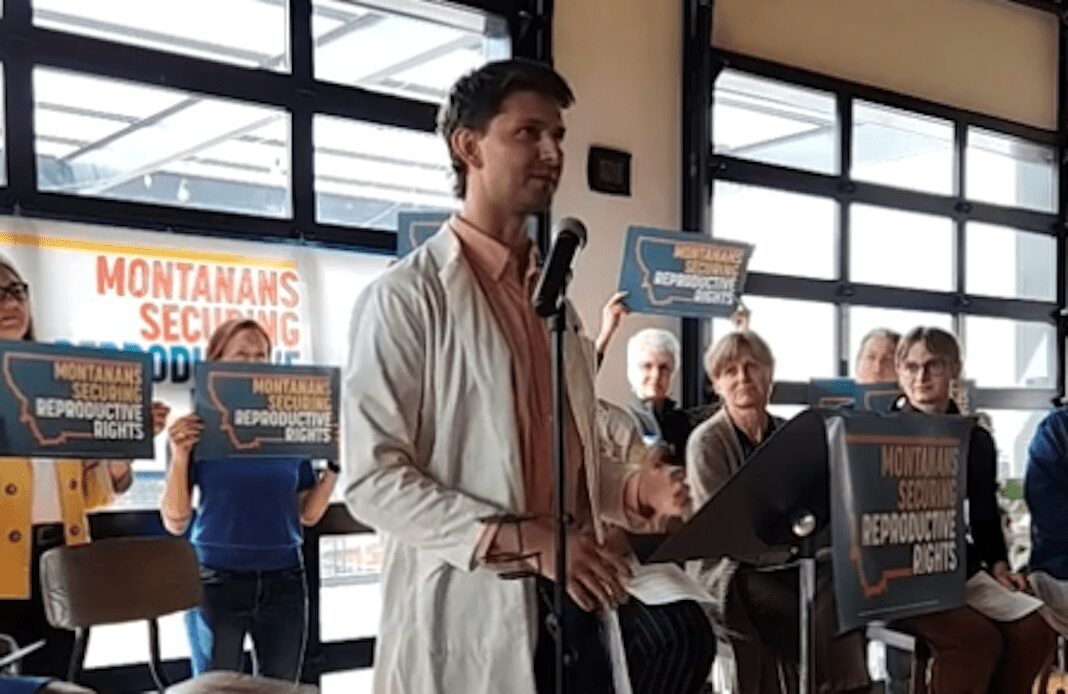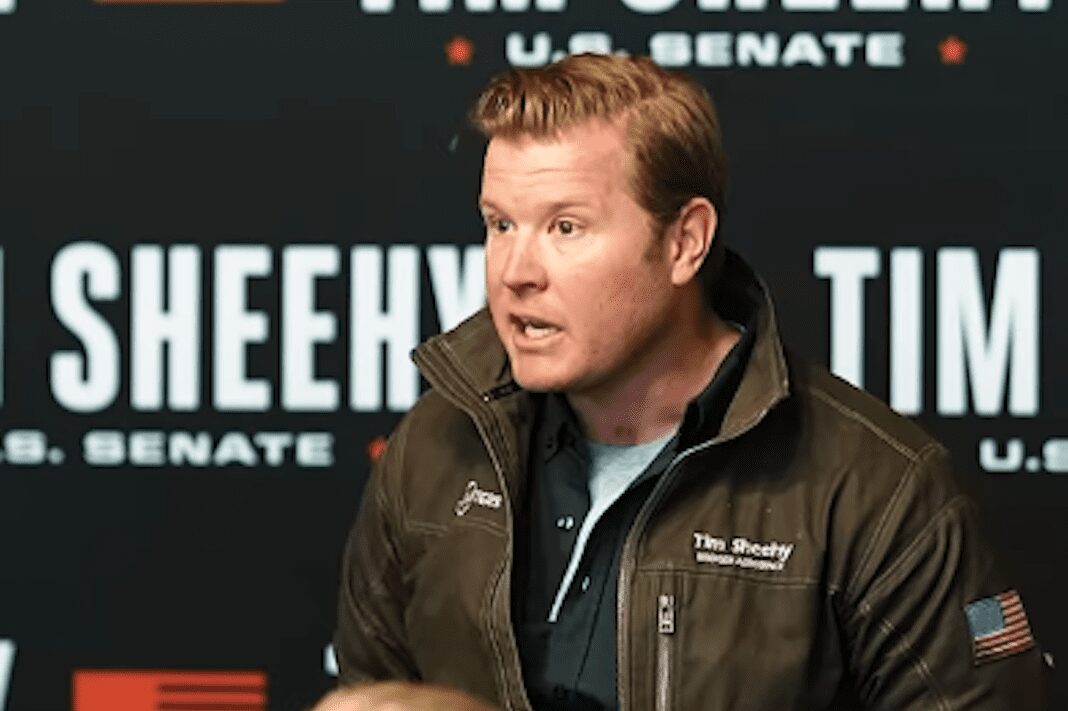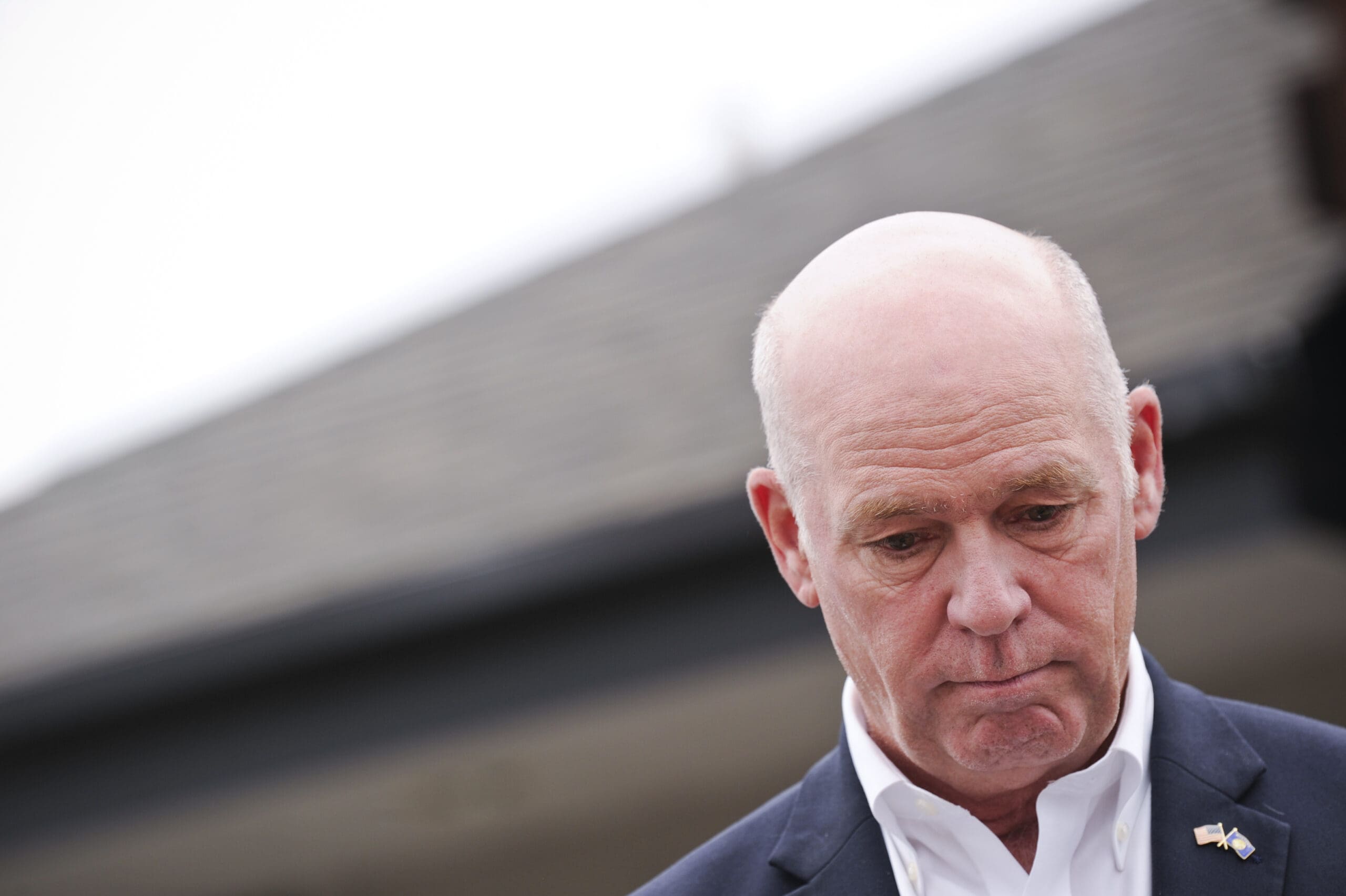Tim Sheehy faces one scandal after another
In addition to potentially lying about a shooting incident and his rural upbringing, the Republican candidate’s main business is mired in debt.

The U.S. Senate campaign in Montana has been jolted in April with back-to-back published revelations that undermine Republican challenger Tim Sheehy, a Bozeman businessman. Buried in one of those stories is a small detail that portends a unique conflict of interest should he become a U.S. senator: His wealth depends directly on global warming getting worse.
The first of the disclosures was perhaps the most sensational. The Washington Post broke an investigative story on April 6 that revealed Sheehy, by his own admission to Post reporters, had lied to a Glacier National Park ranger about an incident in the park in October 2015. The false account stemmed from an injury to Sheehy’s arm that was initially reported by park dispatchers as a gunshot wound resulting from an accidental discharge of a Colt revolver at the Logan Pass parking lot.
Sheehy stuck to that story when later interviewed by a park ranger, claiming the holstered pistol had accidentally fired after it fell when he was unloading cargo from his vehicle.
Sheehy now says that explanation was a lie. There is what appears to be a bullet lodged in his arm, X-rays revealed, but he now claims it was the result of a wound from more than a year before while he was serving in the Navy in Afghanistan. He said he lied to the park ranger to avoid triggering an investigation by the Defense Department of that earlier incident. Compounding the problems, the Post story revealed that he has offered a series of inconsistent explanations of being wounded in Afghanistan.
The Post story, despite its prominent play in a leading national newspaper, drew almost no recirculation in Montana. The second story, however, did. It was a report first broken by the Montana Free Press, an independent online publication, about a Securities and Exchange Commission filing for Sheehy’s main business, the enterprise his campaign touts as a successful venture that qualifies him to be a senator. His company’s annual report with the SEC undermines that claim. The business, Bridger Aerospace, racked up $70 million in losses in 2023 and is deeply mired in debt and in danger of failing.
That story was almost immediately picked up by many of the established daily newspapers in the state, including those of Lee Enterprises, with papers in Missoula, Billings, Helena and Butte.
Aside from undermining Sheehy’s claims about his business acumen, that SEC report raises a separate issue. In part, the report blames those stiff losses in 2023 on the simple fact of decreased demand for Bridger’s services because of a mild year in the Northern Rockies for wildfires. Bridger is in the business of contracting with federal agencies for aerial attacks on wildfires. There’s a simple connection in this, now axiomatic among fire scientists in the West. An increase in catastrophic wildfires is a direct result of two factors: a long-standing policy of fire suppression in forests that has increased the fuel load and now the drought and high temperatures of global warming.
Sheehy’s company acknowledges this in the SEC report: “We are subject to risks associated with climate change, including the potential increased impacts of severe weather events on our operations and infrastructure, and changes in weather patterns may result in lower demand for our services if such changes result in a reduced risk of wildfires.”
This is not, however, Sheehy’s first stumble on the issue of global warming. He had to execute a reversal on the matter even before he was a declared candidate. His business’s website held references to his work in battling global warming, although it was not exactly clear on the differences between getting paid to battle the consequences of global warming and battling to prevent it from happening. That earlier reference on his website was a problem among the element of his Republican constituency that still harbors denial of global warming, so he scrubbed the references from his site.
So too has his dependency on federal contracting surfaced as an issue, but with right-wing Republicans. Sheehy is now the odds-on favorite in the June Republican primary, facing no serious opposition, but only because a pressure campaign by the Republican establishment pushed GOP Rep. Matt Rosendale out of the race. Sheehy is the hand-picked candidate of Montana’s other senator, Steve Daines, who chairs the National Republican Senatorial Committee. Sheehy has also been endorsed by Donald Trump and Montana Gov. Greg Gianforte.
Daines’ action against Rosendale triggered a backlash among conservative Republicans in Montana, largely those in the state’s Freedom Caucus. In that backlash, they cited his company’s dependence on federal contracts as suspect for a true conservative.
Nor does his entanglement with government money end there. The SEC report highlights the fact that one of his company’s most significant debts is $160 million in a bond deal with Gallatin County. That leaves the county on the hook for more than half of Bridger’s long-term indebtedness of $204.6 million. The SEC report says Sheehy’s company is not meeting its debt payments and won’t be at any point during the next 12 months.
Then, after those two major stories broke in early April, the Daily Beast offered another challenge on April 13. Sheehy has frequently touted his rural upbringing in campaign appearances. He grew up in a tony suburb of Minneapolis.



